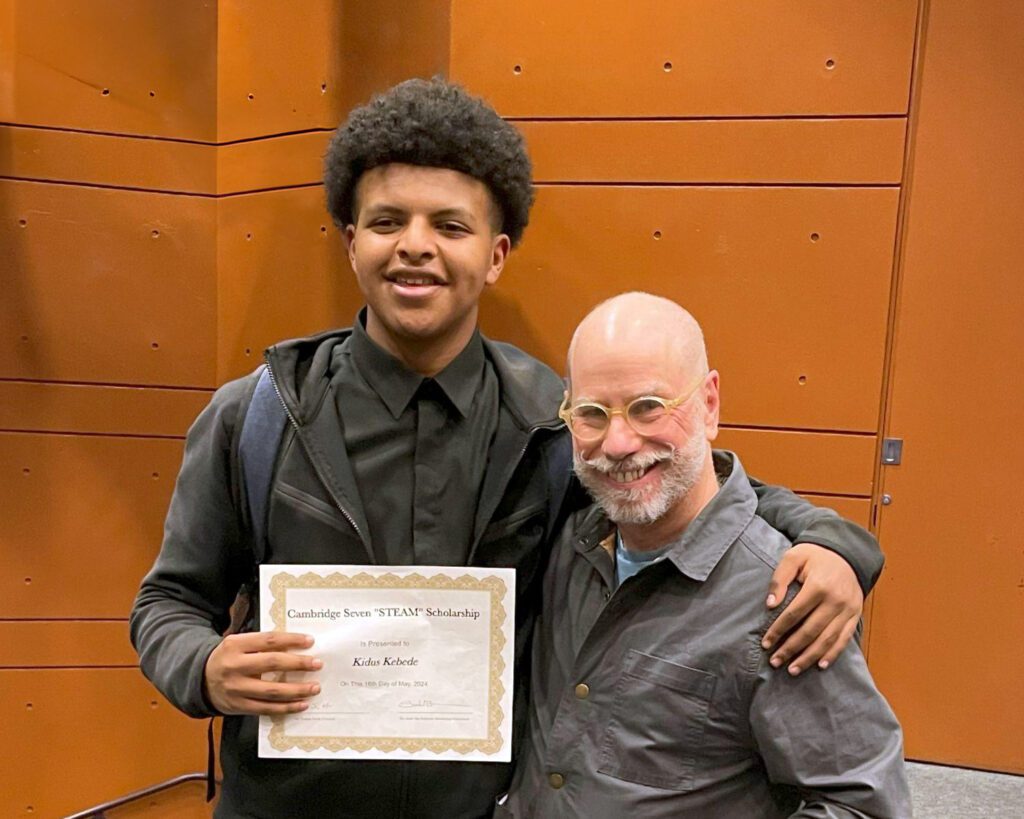Designing Low-Carbon-Footprint Exhibitions
Director of Sustainability Douglas Flandro analyzes how museum exhibitions can be designed to minimize waste and have a gentle impact on our planet.
Director of Sustainability Douglas Flandro analyzes how museum exhibitions can be designed to minimize waste and have a gentle impact on our planet.
CambridgeSeven celebrated the start of construction for the Roux Institute at Northeastern University’s new permanent campus, following a groundbreaking ceremony on September 13.
CambridgeSeven Principal Yongjoo Kim talks inspiration, AI integration, collaboration and more with Anton Giuroiu of ArchitectureLab.
Following a $28M transformation, the Virginia Aquarium and Marine Science Center has unveiled the 42,300 sf renovated south building, designed by CambridgeSeven.
CambridgeSeven is leading the design of the $15 million renovation converting a portion of an old mill into exhibit and gallery space.
President Gary Johnson shares how adaptive reuse that turns underutilized offices into multifamily or hospitality buildings lowers a project’s embodied carbon and keeps the fabric of our cities intact.
To celebrate Ocean Month, CambridgeSeven aquarium experts revisit the idea of Aquarium Trends, focusing on sustainability, resiliency and the incorporation of technology into aquarium exhibits.
The planning board of Portland, Maine has approved the construction of Northeastern’s Roux Institute campus at the site of the former B&M Baked Beans factory in East Deering.
American Press takes a look at the progress of the Port Wonder Children’s Museum and Nature Center.
Architecture Firm CambridgeSeven Awards 7th Annual STEAM Scholarship to Cambridge Rindge and Latin Graduate Kidus Kebede.

CambridgeSeven, the Cambridge, MA-based architecture and design firm, announced the winner of its seventh annual STEAM scholarship for students of Cambridge Rindge and Latin School (CRLS). The 2024 award recipient, Kidus Kebede, graduates from CRLS in June of 2024 and will attend Bentley University in the Fall, where his studies will be in the field of technology.
Kidus was selected for the scholarship due to his lifelong passion for creating and designing spaces which intersect the many disciplines of STEAM (Science, Technology, Engineering, Arts, Math). Since he was a child, he considered building blocks were not just toys, but the foundation of building his dreams and bringing large-scale ideas to life. This early passion for creating and designing spaces ultimately led to his profound interest in the fields of architecture and technology. His courses at CRLS, primarily physics, provided Kidus with the understanding of principles which not only make structures stand, but endure the many physical and emotional elements in the world today. With a passion at the intersection of art and architecture, Kidus experimented with different mediums and perspectives at CRLS to consider how people act in spaces and how those spaces fit into the broader landscape of society. As a first-generation college student, Kidus has always placed a strong emphasis on hard work and the importance of education. Though his parents did not have the circumstances to pursue a higher education, he hopes to inspire his younger siblings to achieve this collective family dream – always reminding them that even the loftiest dreams are within reach.
“On behalf of our entire team at CambridgeSeven, it is our great honor to award our 7th annual STEAM scholarship to Kidus,” said Adam Mitchell, Principal at CambridgeSeven. “At CambridgeSeven, we are constantly inspired by this next generation of innovators and visionaries in the fields of STEM. By empowering individuals like Kidus, we aim to drive forward creativity, sustainability, and excellence in architecture — recognizing that today’s students are tomorrow’s leaders.”
CambridgeSeven began its partnership with the Friends of Cambridge Rindge and Latin School in 2018, to provide an annual STEAM Scholarship Program for students at CRLS. This program grants a $5,000 scholarship to a deserving senior pursuing a college education in one of the STEAM fields. To qualify for this scholarship, the student must be the first in their family to attend a 4-year college, a full-time student working towards an undergraduate degree at an accredited college or university, and committed to excel in one of the STEAM fields.
Previous scholarship winners include Kidus Desalegn, 2023, currently attending Northeastern University, where he studies Computer Science/Mechanical Engineering; Emie Gerard, 2022, currently attending the Rochester Institute of Technology (RIT) where she was accepted into the Combined Accelerated Bachelor’s/Master’s Degree program; Greggy Bazile, 2021, majoring in architecture at Cornell University’s School of Architecture, Art and Planning; Jaadyyah Shearrion, 2020, pursuing a computer engineering degree at Boston University; Sagyan Aryal, 2019, a 2023 computer science graduate of UMass Amherst Honors College; and Soliana Yebio, 2018, a graduate of UMASS Lowell 2022 with a Bachelor’s degree in Public Health and Business.